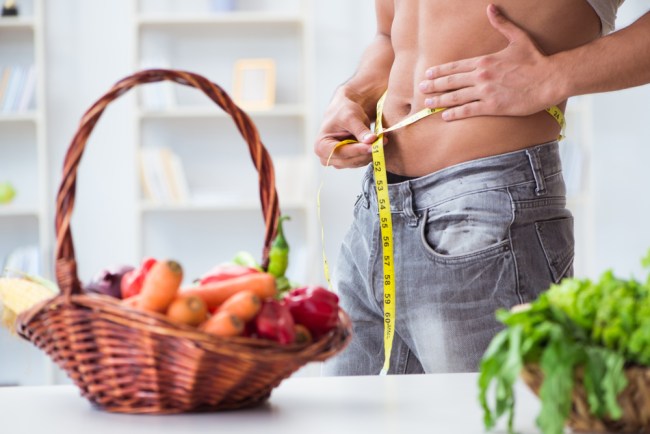
There are over 3000 chemical additives and preservatives available to be used in the food manufacturing process. I don’t know about you, but this freaks me out a little.
Don’t get it twisted – I’m not a tree hugger who prefers wearing burlap to my beloved moisture wicking polyblends. I just think it’s a little weird when food becomes innovation and technology.
Who in their right mind feels great about eating their salad knowing it’s been bathed in glyphosate before making it into our bowl, or that their spinach is referred to as “biotech”?
This is part of the reason why the organic food market brought in over $81 billion dollars in 2012, and has a project growth rate of 14% per year through 2018. People care about what they’re eating, and what goes into their food. Consumers are willing to pay a premium for peace of mind.
I can’t fault people for this. I don’t like knowing that my steak may have never seen green pastures at all, or that my salmon never really got a chance to swim upstream.
The organic halo.
Organic foods aren’t bulletproof. Just because something is organic doesn’t automatically absolve it from ever harming you.
This should be obvious, but for a reason known as the halo effect, it’s not. The halo effect is when our personal feelings towards a company, movement, person, or anything else clouds our judgment and influences our thoughts and feelings about that thing.
Organic food is a perfect example of this.
It’s easy for consumers to see nice packaging, an organic label, and think that cookie they’re about to eat is better for them because of it.
Sure, it might be made with organic ingredients, but eat too many of those cookies and you’ll still gain weight. Organic sugar and flour is still sugar and flour, and if you eat too much of it, you will gain weight.
Calories can, and always will matter.
When it comes to weight loss, calories are king. They will always count. If you’re eating 3,000 calories a day and you’re body doesn’t need that many, you will gain weight. It doesn’t matter if those calories come in the form of your Bulletproof coffee with organic grassfed butter that was churned during the waxing gibbous moon phase, organic brownies, conventional cookies, or even organic produce.
3,000 calories is 3,000 calories.
Does this mean food quality is pointless? Hell to the no. Someone who eats plenty of vegetables, fruits, lean proteins, and limits their refined carbs is going to look better, feel better, and have better overall health.
Food quality is massively important, especially the more specific your goals become. Food quantity is a great way to govern overall weight loss; food quality is a great way to govern body composition.
Just because something is organic doesn’t mean it’s better.
I’m not an organic hater. I try to buy local and organic foods, because it makes me feel better. I prefer knowing I’m buying organic meats, fruits, vegetables, and I fall victim to the awesome packaging that organic sweets tend to have.
I’m not living under some halo that organic calories don’t count, though. Organic calories are just as likely to make me gain weight as conventional calories. Maybe even more, because I’m guaranteeing that I’ll be eating real sugar with organic products.
Huh?
Maybe you’ve checked it out before, maybe you haven’t, but I don’t hate artificial sweeteners. I’ve got nothing against them whatsoever. I think they can be really useful, actually.
It sounds crazy to a lot of people, because the media reports artificial sweeteners to be the equivalent of Agent Orange sometimes, when that really isn’t the full story.
With artificial sweeteners, just like anything else, the death is in the dose. With artificial sweeteners that dose turns out to be pretty high. For example, if you wanted to get enough aspartame to get into the lower levels of it being considered dangerous, you’d need to drink about 19 diet cokes a day.
If someone is drinking 19 diet cokes a day, they’ve got more problems to fix in their diet than just their intake of artificial sweeteners. There’s probably a major reliance on refined and heavily processed, without much emphasis on vegetables.
Cutting down diet coke intake would be one step of many with this hypothetical person, but it wouldn’t be the first step, and therein lies the point. Artificial sweeteners aren’t the devil, and organic foods aren’t angels. Both have the propensity to kill us or make us gain weight if we get too crazy with them.
What should you do?
Be smart with your intake. Don’t buy organic just because you feel like it automatically means it’s better for you.
No matter what, eat plenty of colorful fruits and vegetables at every single meal. Limit the amount of refined foods, sugar, and sweeteners you use. Eat lean proteins, plenty of fiber, and try to use fats that aren’t made in a lab.
If you can afford organic food, and you prefer to buy that, then buy it. Don’t chastise others for not doing the same. That doesn’t make you seem cutting edge, it makes you seem like a dick.